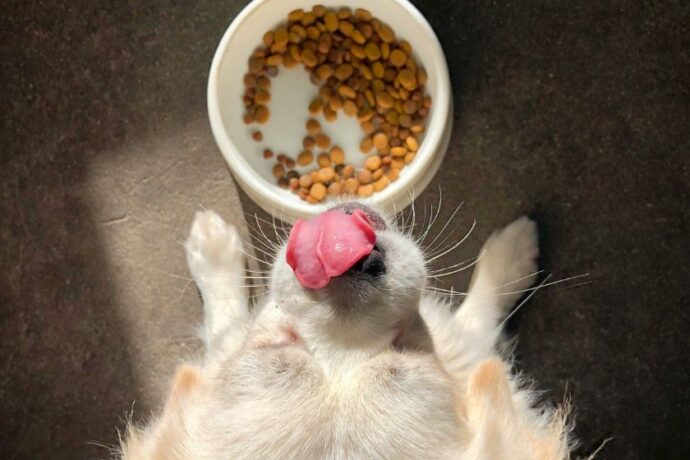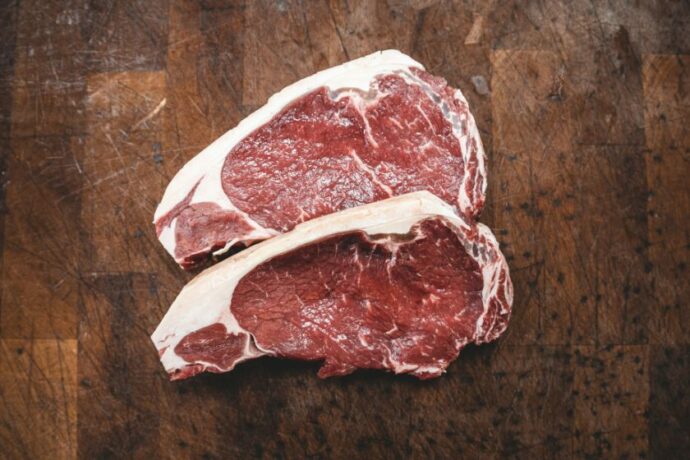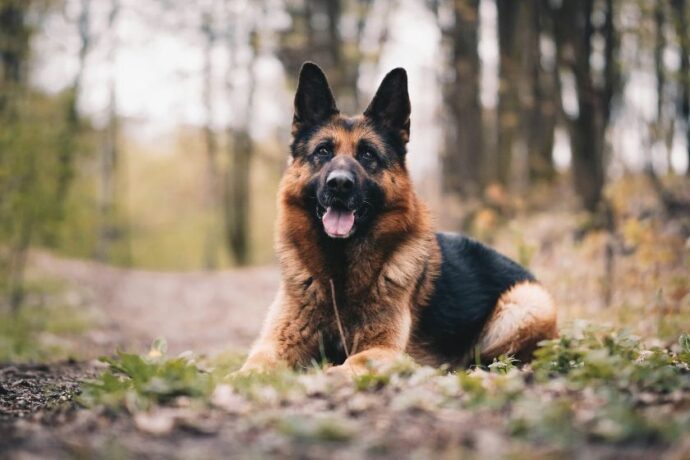
Sharing a sweet treat with your four-legged companion is an enjoyable experience for you and your dog. Unfortunately, some processed desserts can have immediate and long-term adverse health effects. Before you share cheesecake with your dog, make an informed decision by learning how your dog will most likely react to this sweet food.
Can Dogs Have Cheesecake?
As a general rule, your dog can eat a small bite of cheesecake on a rare occasion. This doesn’t mean you should feed your dog a cheesecake filled with cookies, chocolate chips, strawberries, or other extra ingredients. When there are additional ingredients or toppings, you’ll have to consider how those items will affect your dog as well.
Know the Health Risks of Feeding Your Dog Cheesecake
Can cheesecake kill a dog? An occasional piece of cheesecake won’t kill your dog, but it could result in other health concerns. You can predict how your dog will react to a piece of cheesecake by looking for ingredients that are most likely to produce unwanted health concerns.
Cream Cheese
Many dogs are lactose intolerant, so this major cheesecake ingredient might immediately make the dessert off-limits. There are specific dog breeds known to fall into this category, so these breeds should never eat any dairy products, including cheesecake.
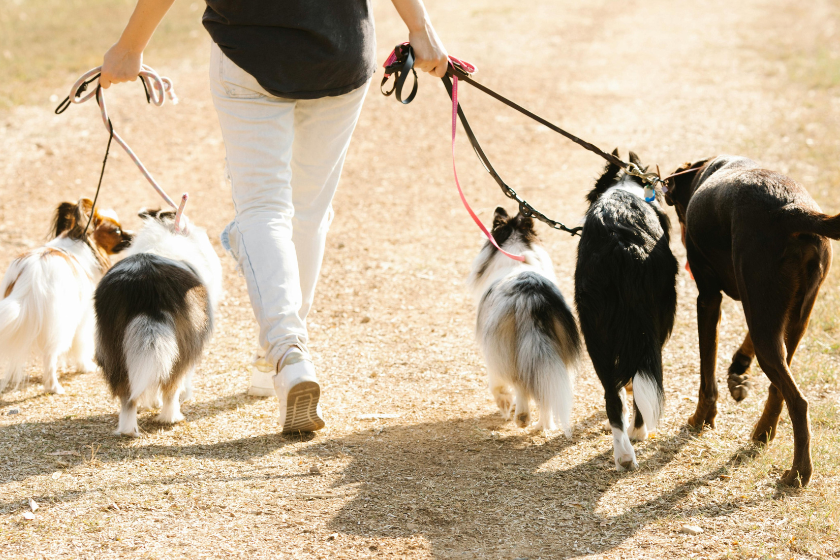
Lactose intolerant breeds include:
- Labrador Retriever
- West Highland White and Wheaten Terrier
- Miniature Schnauzer
- Rhodesian Ridgeback
- Shar Pei
- German Shepherd
- Springer and Cocker Spaniel
Even if your dog doesn’t belong to one of these breeds, keep in mind that cream cheese is high in saturated fat and sugar. Too much cheesecake can lead to an obese or overweight dog.
Long-term obesity makes other health risks more likely, such as metabolic syndrome, hip damage, joint strain, and pancreatitis. If your dog develops arthritis or joint strain as a result of obesity, you may need to give your dog joint supplements.
Xylitol
Many premade graham cracker crusts contain xylitol, which is an artificial sweetener. The sweetener might also be present in other sugar-free or low-sugar products, such as cream cheese, fruit toppings, and artificial chocolate. Xylitol is very toxic to dogs, resulting in seizures, kidney damage, and muscle tremors. If your dog accidentally consumes food with xylitol, make sure to consult your vet right away.
Macadamia Nuts
Can dog eat cheesecake with nuts? While some nuts are safe for dogs to eat, macadamia nuts pose serious health risks. Macadamia nuts are toxic for dogs, and their digestive systems cannot process these foods. A lack of coordination, accompanied by shaking and confusion, commonly indicates a reaction to this type of nut.
Raisins
Both raisins and grapes contain tartaric acid, which is a compound that irritates the digestive tract in dogs. If the cheesecake has raisins in it, your dog might vomit or develop diarrhea right after consuming it.
Your Dog’s Unique Dietary Needs Matter
Can dogs eat cheesecake safely in moderation? In general, the answer is yes, but you should consider your dog’s unique dietary needs. As previously mentioned, lactose intolerance might immediately make cheesecake an off-limits food for your dog. Other dietary concerns might include gluten allergies, diabetes, or heart disease.
Additionally, a dog that is already overweight or obese shouldn’t have any treats high in sugar or fat. The sugar and fat will contribute to the animal’s weight problems and increase their health risks. Even a small amount of sugar can complicate cardiovascular disease, hypertension, arthritis, and other health conditions.
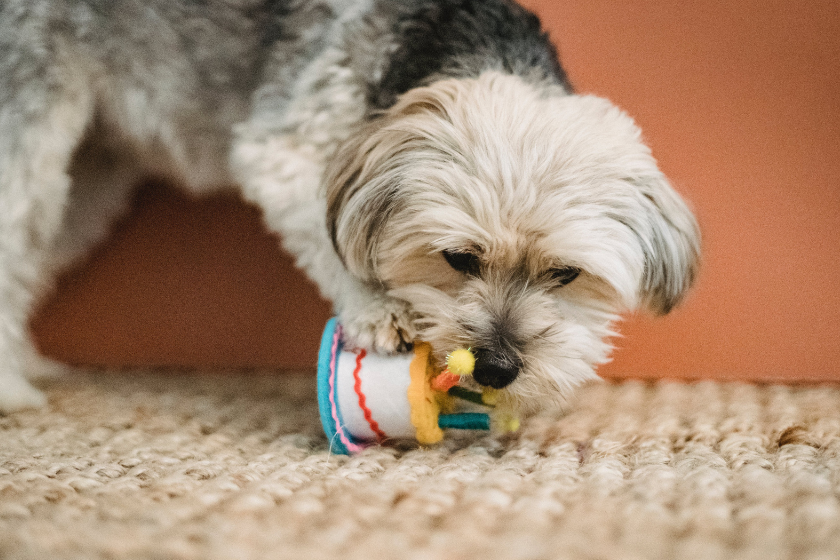
Is Cheesecake Bad for Dogs? Know the Signs
If you do decide to share a little cheesecake with your dog, it’s important to know the signs of a bad reaction. Every dog will react differently, so you might only see one or two signs of an adverse reaction.
Look for the following symptoms of an adverse reaction to cheesecake:
- Diarrhea or constipation
- Flatulence
- Vomiting
- Seizures
Long-term effects that can result from eating too much cheesecake include:
- Red or itchy skin
- Ear infections
- Hot spots or bald patches
- Bronchial infections
Schedule an appointment with your veterinarian if you observe any of these health changes. Your vet might recommend supplements for skin infections and other treatments to improve your dog’s symptoms.
You Can Choose to Skip the Cheesecake
Many ingredients in cheesecake produce unwanted effects on a dog’s health. While some cheesecake can be okay in moderation, you might prefer to look for a safer alternative. Keep dog treats on hand and share them with your dog when you’re enjoying cheesecake. Alternatively, look for delicious natural treats you and your dog can enjoy together.

